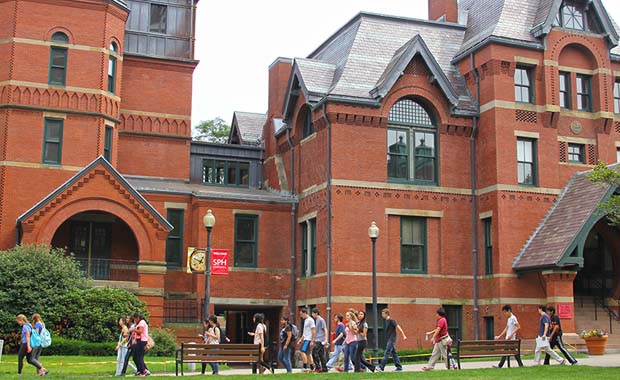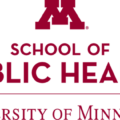Boston University School of Public Health (BUSPH) is one of the graduate schools of Boston University. Founded in 1976, the School offers master’s- and doctoral-level programs in public health. It is located in the heart of Boston University’s Medical Campus in the South End neighborhood of Boston, Massachusetts. The school has more than 8,900 alumni, 267 faculty, and 227 staff; its students hail from more than 43 countries, and its total research portfolio is worth more than $180 million. BUSPH is fully accredited by the Council on Education for Public Health and ranked 8th among Public Health Graduate Schools by U.S. News & World Report.
The school was established in 1976 as a program within the Department of Socio-Medical Sciences and Community Medicine with an initial class of 54 MPH students and 20 non-degree students. It was the brainchild of Dr. Douglas K. Decker, who designed its admission criteria (successful healthcare managers and practitioners), curriculum (practical, rather than theoretical), teaching approach (pairing academicians and accomplished practitioners in the field), and schedule (night classes only held on Tuesday, Wednesday, and Thursday so that working medical professionals could attend.) The first dean was Dr. Norman A. Scotch, who guided the school through the accreditation process and who “developed a program that offered professionals the opportunity to continue working while they earned their degrees in Public Health.”.
In 1977, 59 part-time students were admitted to the MPH program. There were two concentrations: Health Delivery Systems, and Health Research and Evaluation. Two new concentrations were added in 1978, Health Regulation and Planning, and Public Health Law. On June 26, 1979, BUSPH became an official school of Boston University, matriculating 156 students and offering afternoon courses for the first time. It had five programs: Environmental Health, Health Care Systems, Public Health Law, Research and Evaluation, and Social and Behavioral Sciences. That same year the first graduation ceremony was held for 46 graduates.
In 1981, the school expanded to include the departments of Epidemiology and Biostatistics. It also began accepting full-time students and enrolled its first international students. The International Health department was created the following year. In 1983, the School received its full accreditation from the Council on Education for Public Health.
The Office of Special Projects was established in 1985 to provide education and training in international health and to conduct overseas and domestic research and service programs. This Office later became the Center for International Health, which housed the Department of International Health. The following year the first doctoral student graduated.
The school experienced significant growth in recent times matriculating 370 MPH students in 2012, moving to its current location in the historic Talbot Building, and instituting a practicum requirement for MPH students. The total cost of the MPH degree is 48 credits x $1,777, with fees associated with full-time and part-time study, or $85,296. The total cost of an MS degree is 34 credits x $1,777, with fees associated with full-time and part-time study, or $60,418. All costs are based on tuition rates and fees for 2020-2021. See: Public Health Schools In Nigeria
Boston University School Of Public Health Acceptance Rate
Boston University School of Public Health grants the following degrees:
- Master of Public Health (MPH)
- Master of Arts (MA)
- Master of Science
- Doctor of Philosophy (Ph.D.)
- Doctor of Public Health
A college’s overall quality and prestige is determined in part by its selectivity, of which acceptance rate is the main indicator. The acceptance rate figures are provided by the IPEDS database, a tool offered by the U.S. Department of Education.
Acceptance rate is determined by the ratio of the number of students who are admitted to a university to the number of total applicants that applied to that fall term. The acceptance rate is based on first-time, first-year students. A lower acceptance rate is indicative of a school that is more selective and admits fewer students. Schools with lower acceptance rates will rank higher, and overall acceptance rate plays a significant role in school ranking. Boston University School of Public Health has an acceptance rate of 60% according to available data. Students seeking to pursue a public health career by gaining admission to the Master of Public Health program at BU’s School of Public Health must have already earned or be in the process of earning a bachelor’s degree. There are no specific undergraduate pre-requisites, though experience working, volunteering, or researching topics related to public health are valued in the review process. SEE: CUNY School Of Public Health Acceptance Rate





